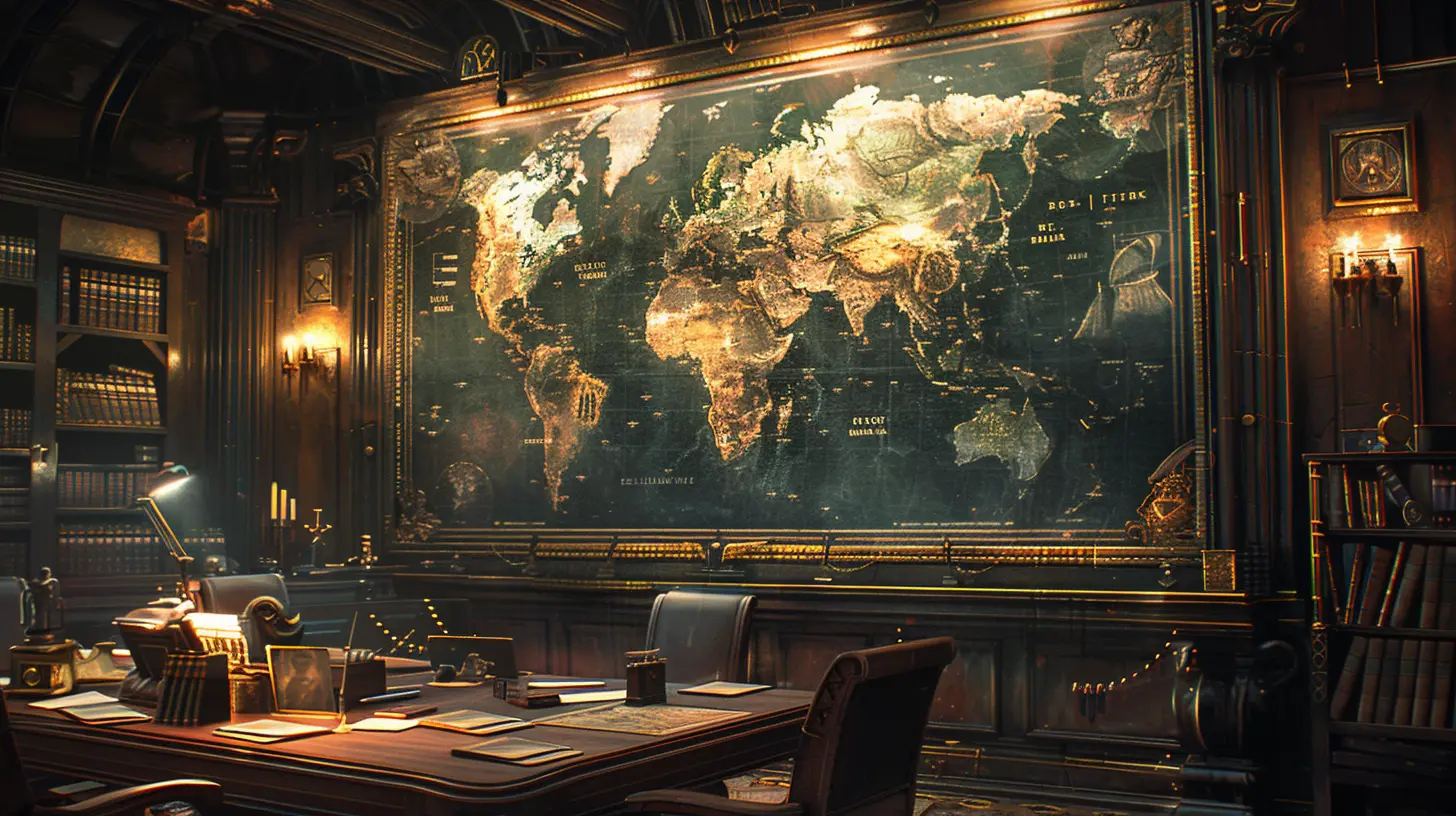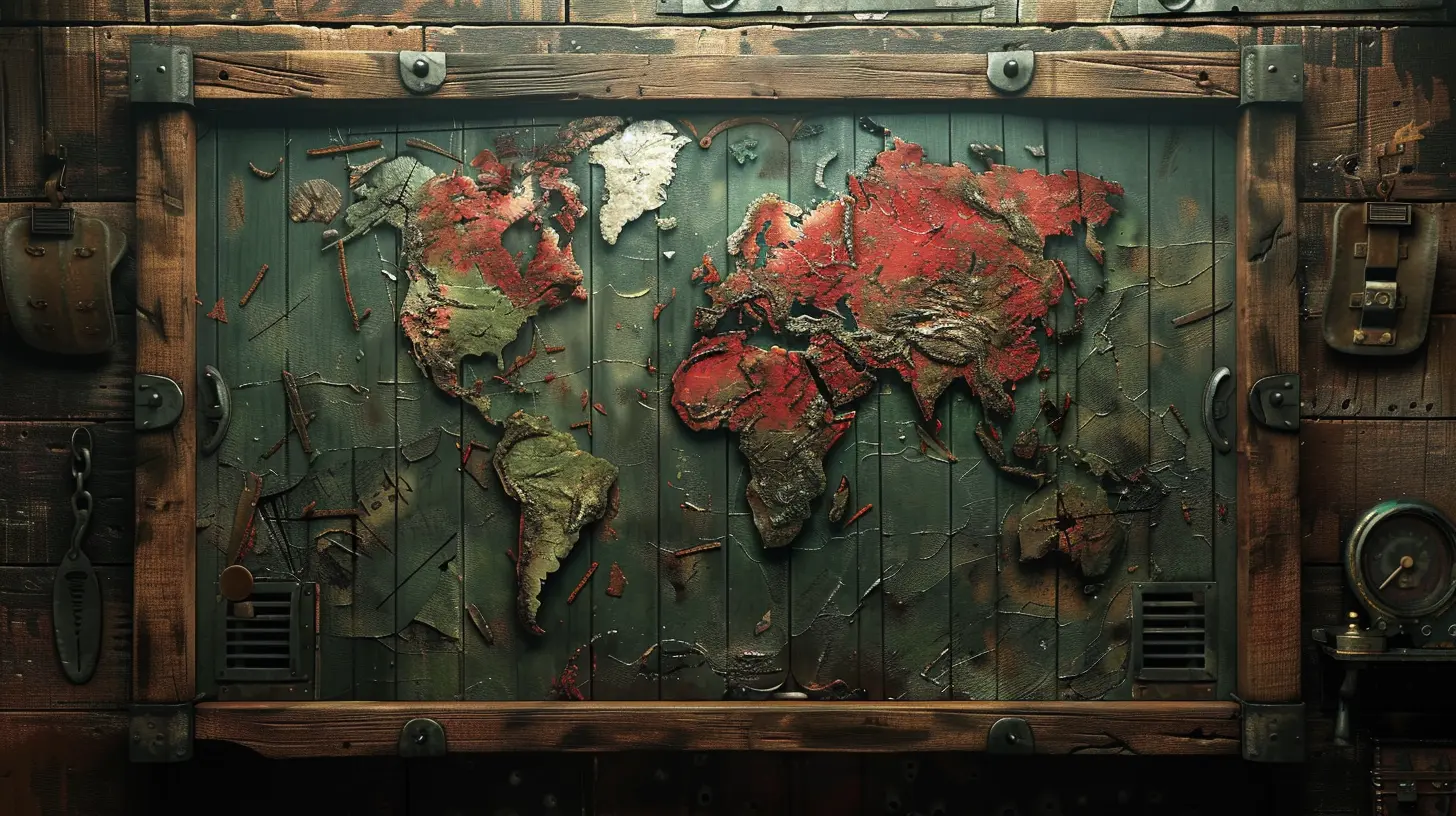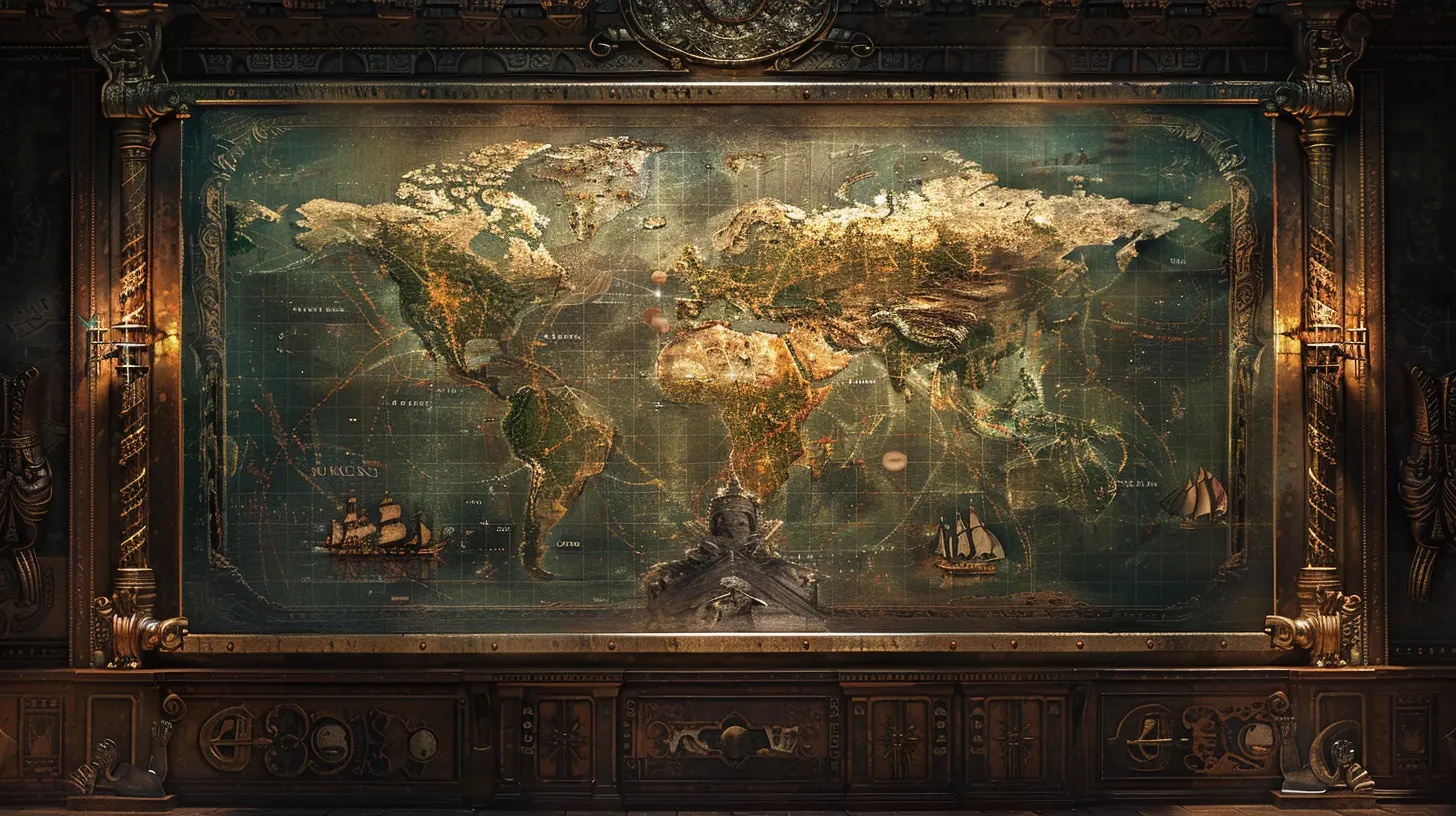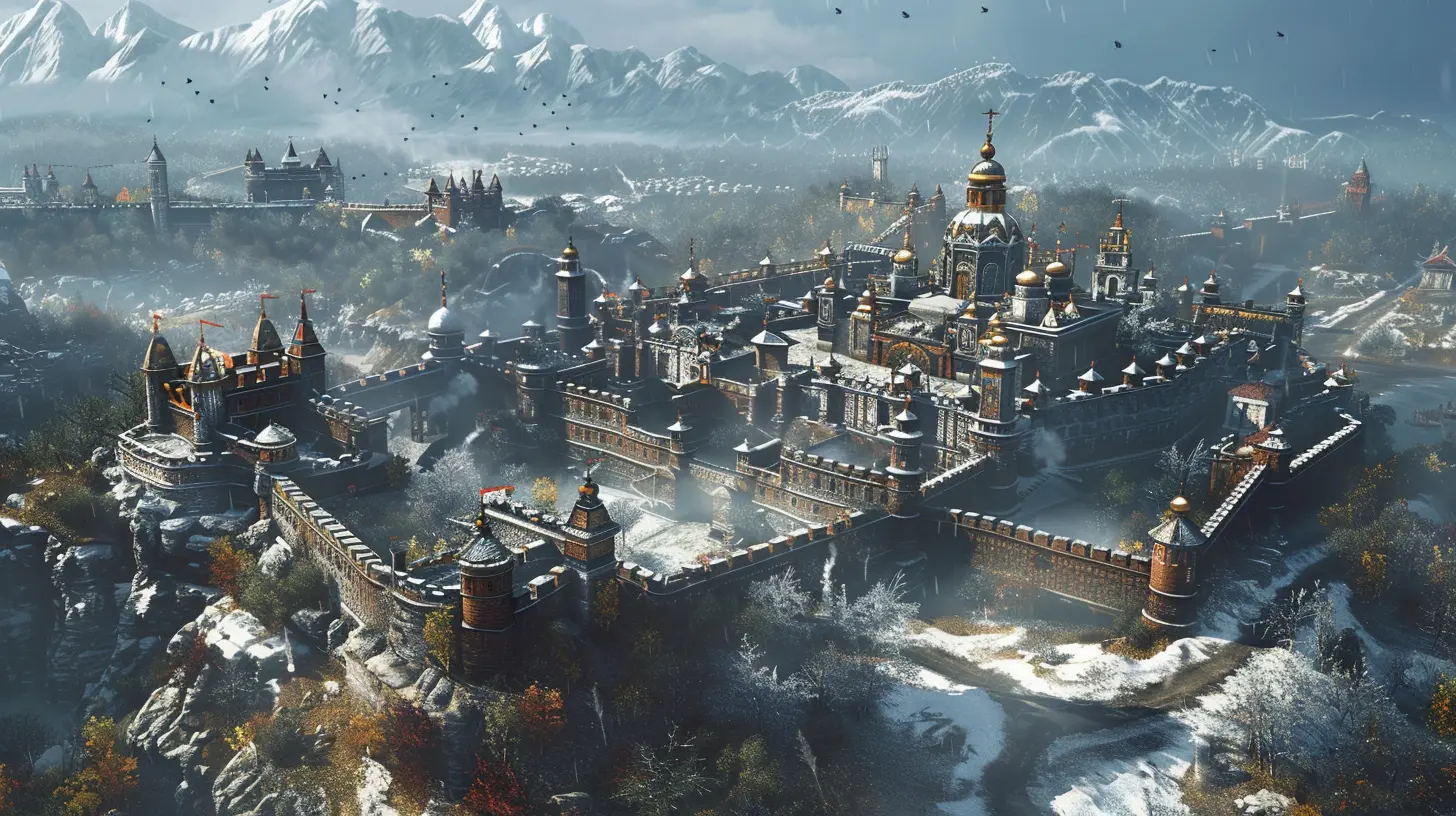The Role of Diplomacy in Real-Time Strategy Multiplayer
17 November 2025
When it comes to real-time strategy (RTS) games, most people picture massive armies clashing on sprawling maps, resources being harvested faster than a toddler grabbing candy, and players micromanaging units with lightning-fast reflexes. But there’s another side to these games that often flies under the radar—a side that’s less about brute force and more about finesse, persuasion, and, dare I say, sweet-talking your rivals. Yep, I’m talking about diplomacy. If you’ve ever played a multiplayer RTS and wondered how diplomacy fits into the chaos of war, stick around. We’re diving deep into it.
Why Diplomacy Isn’t Just a Side Dish in RTS Games
You know how some people say, "All’s fair in love and war"? Well, they clearly haven't played RTS multiplayer. Sure, building an unstoppable army is great and all, but diplomacy can be just as, if not more, important in shaping the outcome of a match. Why? Because when you're pitted against multiple human players, the battlefield isn't limited to just your tanks and troops; the real battle often takes place in alliances, backroom deals, and timely betrayals.Think of diplomacy as the secret sauce that spices up gameplay. It’s not about raw strength alone—it’s about reading people, bluffing when you’re weak, and using words as weapons. Even the strongest empire can crumble when it’s surrounded by united rivals. So yeah, diplomacy isn’t just a garnish; it’s the backbone of many RTS multiplayer matches.
The Basics of Diplomacy in RTS Multiplayer
Before we start talking strategy, let’s quickly break down what diplomacy even looks like in an RTS setting. It can vary a lot depending on the game, but here are the key elements that most multiplayer games share:1. Alliances
Alliances are like that group project in school where you buddy up with the smart kid to pass the class (except, in RTS, you’re both plotting to screw each other over eventually). Forming an alliance lets players share information like map visibility, coordinate attacks, and sometimes even trade resources. But, as history has shown us time and time again, alliances are fragile. One betrayal, and it all comes crashing down.2. Negotiations
Ever tried haggling at a flea market? Diplomacy in RTS can feel a lot like that. “Hey, if you don’t attack me, I’ll send you some gold!” or “How about we wipe out Player C together, then figure things out afterward?” Negotiations often involve promises (some truthful, others... not so much) and can have a huge impact on the flow of the game.3. Betrayals
Let’s face it—betrayal is the lifeblood of diplomacy in RTS games. Whether it’s breaking a non-aggression pact or turning on your ally the second their army moves away, betrayals add a deliciously chaotic element to matches. Just don’t be surprised when karma comes knocking later.4. Resource Trading
In some RTS games, diplomacy isn’t just about words—it’s about cold, hard bargaining. Need more wood? Offer to trade some stone. Running low on food? Convince your neighbor to share in exchange for future protection. Resource trading can keep your empire afloat, especially in longer matches.
How Diplomacy Changes the Meta of RTS Multiplayer
Here’s the thing: Diplomacy isn’t just an optional mechanic—it’s a game-changer. In fact, it can completely reshape the meta (basically, the “best way” to play a game). Let me break it down for you.1. Shifting the Balance of Power
Imagine you’re Player A, minding your own business, when suddenly Player B decides you’re their mortal enemy. If you’re outmatched, diplomacy might be your only lifeline. By rallying Player C and Player D to your side, you can shift the balance of power and turn what could’ve been a one-sided beatdown into an epic three-way standoff. It’s like Survivor, but with fewer tiki torches and more nukes.2. Psychological Warfare
Ever heard the saying, “Keep your friends close, but your enemies closer”? In RTS games, diplomacy isn’t just about practical benefits—it’s about messing with people’s heads. Maybe you forge an alliance with Player B just to lull them into a false sense of security before blindsiding them. Or maybe you spread rumors (“Hey, I heard Player C is building up an army to attack you!”) to sow distrust among your rivals. Good diplomacy isn’t just strategic; it’s downright Machiavellian.3. Extending Survival
Let’s be real: Sometimes, you’re just not in a position to win. That doesn’t mean you should roll over and die, though. Diplomacy can help you stay alive long enough to turn the tables. By allying with stronger players or convincing others to leave you alone, you can bide your time, build up your strength, and maybe even pull off a surprise comeback.
The Risks of Playing the Diplomatic Game
Of course, it’s not all sunshine and rainbows. Like any good strategy, diplomacy comes with its risks. And trust me, there’s nothing more humiliating than watching your carefully laid plans blow up in your face.1. Being Too Trusting
Let’s get one thing straight: In RTS multiplayer, trust is a rare commodity. Sure, that alliance might seem solid now, but what happens when your “teammate” decides they don’t need you anymore? You’ve got to keep your guard up and expect the unexpected.2. Overcommitting to Deals
It’s easy to get caught up in the excitement of diplomacy and promise more than you can deliver. “Sure, I’ll send you half my army to help with that attack!” Sounds great—until you realize your own base is now wide open for a counterattack.3. Earning a Bad Reputation
If you’re the kind of player who betrays every alliance the second it’s convenient, people are going to catch on. And when they do, good luck making any deals in future matches. You might think you’re the next Littlefinger, but all it takes is one burned bridge to make you public enemy number one.Games That Nail Diplomacy in RTS
Not all RTS games handle diplomacy the same way—some embrace it, while others keep it more of a background feature. Here are a few games where diplomacy really shines:1. Age of Empires II
Ah, the classic. Age of Empires II might be known for its iconic trebuchets (best unit, fight me), but its diplomacy system is surprisingly flexible. You can change alliances mid-game, send tribute to other players, and even communicate through chat to hatch sneaky schemes. The possibilities are endless.2. Stellaris
Okay, so Stellaris technically leans into 4X territory (eXplore, eXpand, eXploit, eXterminate), but it’s still in real-time and involves plenty of diplomacy. Form federations, negotiate trade deals, and navigate the complexities of intergalactic politics. Just don’t trust the Blorg Collective—they’re sketchy.3. Rise of Nations
Rise of Nations takes a more streamlined approach to diplomacy, but don’t let that fool you. Non-aggression pacts and alliances can be pivotal in multiplayer, and breaking them at just the right time can lead to glorious (or disastrous) results.Diplomacy: The Hidden Art Form
At its core, diplomacy in RTS multiplayer is about human interaction. It’s about making connections, breaking them when it suits your interests, and always staying one step ahead of the competition. It’s messy, unpredictable, and sometimes downright infuriating—but that’s also what makes it so much fun.The next time you dive into an RTS match, take a moment to think beyond your base and troops. Look at the bigger picture. Remember, even the mightiest armies can be outmaneuvered by a well-timed alliance or a brilliantly executed double-cross. So go ahead—try your hand at diplomacy. Who knows? You might just talk your way to victory.
all images in this post were generated using AI tools
Category:
Real Time StrategyAuthor:

Avril McDowney
Discussion
rate this article
1 comments
Zareth Love
Mastering diplomacy can elevate your gameplay—forge alliances, strategize, and conquer together! Embrace the power of teamwork!
November 18, 2025 at 4:44 PM

Avril McDowney
Absolutely! Diplomacy is key in RTS multiplayer; it enhances collaboration and can turn the tide of battle through strategic alliances.


